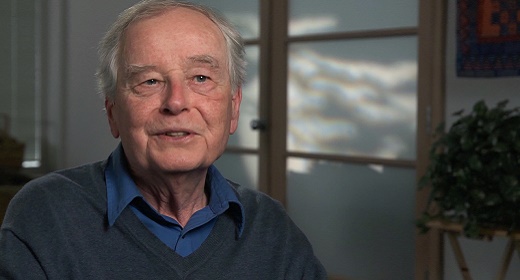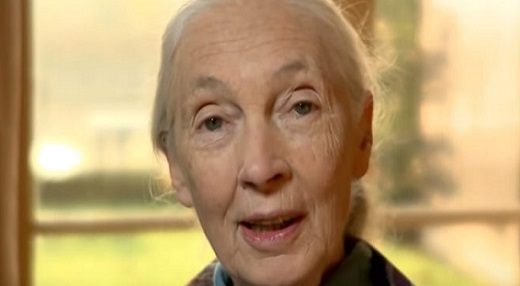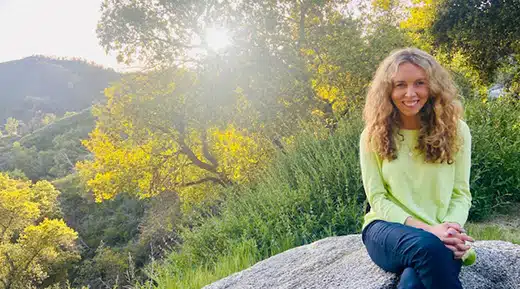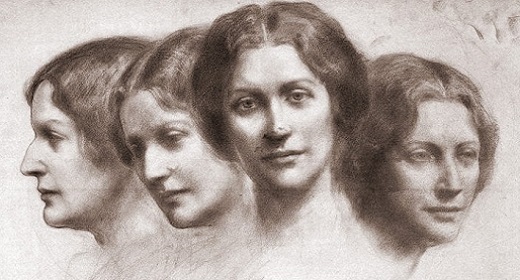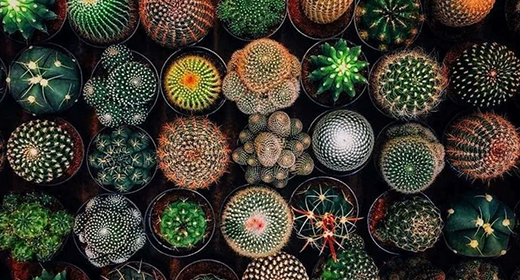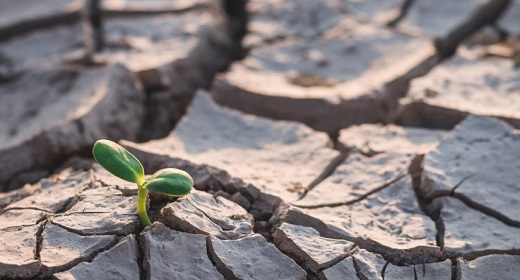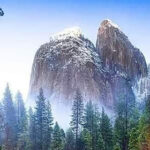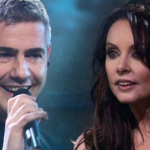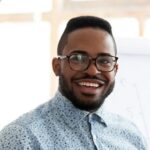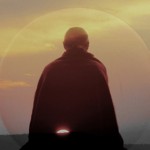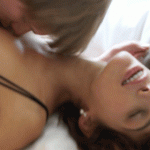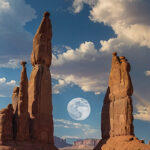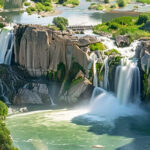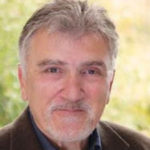Donna Quesada: Jon, in practical terms, what would be the first step, as you see it?
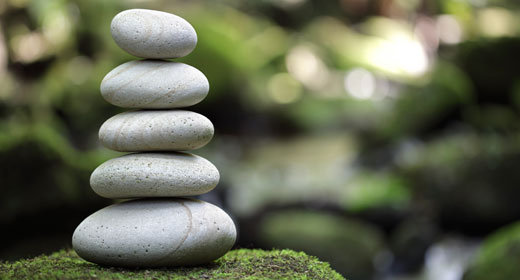
Jon Kabat-Zinn: Well, I don’t know. I don’t want to be simplistic about it. I think the most important first step would be to learn how to listen to each other. And to assess levels of risk. And then, take our resources and put them into what is important. But, if we are prevented from doing that by being in these foxhole camps that Democrats only do this and Republicans only do that… no one is thinking about the well-being of the whole. That’s a form of disease. So, nothing good can get done that way. And very often, one side is no better than the other. Sometimes it can look like they are better until they get power. Then they start to abuse it, too.
So, ethics has to be the absolute foundation of what we do. Ethics and morality. When we say “all the people,” we mean ALL the people. We the people. All men are created equal. Well, it’s all people are created equal. Not just men. We need to actually be enshrined in our laws about equality in a way that we haven’t. Because the country’s history was all white men at the signing of the Declaration of Independence. And not just white men, but land owners. Wealthy people. And there has been a battle ever since then, and even before then, about whether democracy means the sharing of good fortune… of wealth, or whether it’s concentrating the wealth in a very small number of hands. And then, everyone else has to fight to maintain the second-class citizenship. These are profound issues. The body couldn’t survive if the heart and lungs said “we are going to take all the blood, but the liver… we don’t like the way you look, so you aren’t going to get that much blood, in the form of money or oxygen.” It’s not going to do the liver much good. It doesn’t have enough oxygen.
DONNA: Are you hopeful that we are up to the task of turning things around, or have we reached the breaking point?
JON: I’m hopefully optimistic, but unfortunately, I think for us humans to be up to the task… often,we don’t seem to galvanize ourselves until the proverbial stuff hits the proverbial fan, and by then, it may be too late. I’m optimistic in an infinite number of ways. But, I’m also appalled at how much self interest drives wealth inequality and resource inequality. It’s no longer even in the self-interest of the wealthy to do that because it’s going to create more hoarding all the water. An environment where some people get water and other people don’t get water. This is a prescription for the people with the water to lose because It’s untenable.
So, we need to have a more holistic, if you will, view of it. That’s why I feel like, in some sense, what we have been learning in medicine in the past forty years about the nature of the mind-body connection and healing… we need to apply that to the body politic.
And aside from Brexit, which is an insane situation… it turns out that the parliament in the UK has been training in mindfulness for years… members of the House of Lords and the House of Commons. Thousands of people have gone through a program. And they see the potential for reorganizing the country on the basis of these kinds of mindfulness principles and practices. But Brexit has thrown a ridiculous wrench into everything. And why is Brexit going on? Because there is so much pain from not recognizing who is losing, from globalization.
DONNA: What stops us from implementing mindfulness into our school system on a more general and wide-spread level?
JON: Nothing. In fact, that is going on like crazy in the UK… in a beautiful way, and is being studied at the University of Oxford, which has its own mindfulness center. It’s happening all over the place in the U.S., because teachers can’t teach anymore, so they’re desperate. Kids come to school and they aren’t ready for the curriculum because sometimes they haven’t even had breakfast, when they’ve experienced domestic violence of one kind or another… or people in their neighborhood being shot the night before. Then they are supposed to learn algebra of trigonometry. How does that relate to my life? And teachers are finding that when you teach kids to be more mindful, you are basically teaching them how to tune their instrument of learning. Because the instrument of learning is based on paying attention. And mindfulness is the awareness that comes from paying attention in a particular way. Non-judgmentally, in the present moment. You have to exercise that muscle, then you learn how to pay attention, and teachers don’t have to yell at their class to pay attention. And then, when you start paying attention, the curriculum becomes very interesting. There are a lot of scientific papers about it. Not just in the UK, but in the U.S., coming out of the University of Wisconsin, which has a long-term contract with the Madison Public Schools. They’ve been implementing a kindness and mindfulness curriculum for years… five and six-year-olds… four-year-olds… studying the effects of this on down stream learning.
DONNA: Would you be willing to share with us what has been your greatest challenge, as an uplifter and teacher?
JON: My own shortcomings. Inadequacies, I guess. I can’t think of anything else. I mean, I feel like the world is starving for this. I’ve never felt any impediments or challenges coming from it. There’s medical school politics, but that’s not a big deal. It’s actually never been a factor. It’s never been a factor, in terms of the arc of the last 40 years of development of MBSR. Medicine has welcomed it. I mean, the words medicine and meditation come from the same deep Indo-European root. So, it’s not so weird to bring…
DONNA: Medicine and meditate come from the same etymology… that’s fascinating! Meaning?
JON: Well, they both come from the Latin, which means to cure. But the deep European is med, which is, to measure. So, you say, “what does medicine or meditation have to do with measuring?” The answer is, nothing… if you think of it as being the measurement of an external standard. Applying a standard to take the depth or the breadth of something… But, this is referring to a more plutonic measure. That everything has its own, right, inward measure. So, medicine is the restoring of right inward measure, when it is disrupted. So, that’s what medicine is. It’s restoring natural balance or “righting” measure. What is meditation? It’s the direct perception of right inward measure. That you are already okay… in some extremely profound way.
DONNA: I’m getting some strange usage of measure. I’m measuring up, in terms of my own conscious awareness. I’m here. I am.
JON: But that is often measuring against an external standard. So, what we are talking about is not so much measuring up, that way, but in the sense of profound completeness. So, it’s beyond measure,in a sense. Health is beyond measure. It’s immeasurable. Learning… no one knows how we learn. It’s unmeasurable. Loving… of course, immeasurable. These are immeasurable.
In fact, in Buddhism, there are meditation practices… all the four immeasurables. There’s a cultivation of love and compassion and sympathetic joy (and equanimity). Those are called the four immeasurables. Why? Because they bring benefits that are virtually so powerful that they are beyond the thinking minds to realize how profound…
DONNA: Or even name it…
JON: How profound these are…
DONNA: You’ve been at this a long time. What gets you out of bed every morning? What gets you excited and inspired about your work?
JON: The effect that it’s having in the world. The joy of working with colleagues around the world, who are deeply involved with this kind of work and paying it forward to people who have profoundly benefited from it. That is, its own sense, a joy, but that’s not why I do it. I don’t do it for the feedback of people coming up to me about how much I’ve changed their lives and how much gratitude they express. That happens all the time, but that’s not why I do it. I do it because it’s a great adventure, and life is a great adventure, and I don’t want to miss it. And I don’t want to only see part of it. I want to see all of it. And that means learning how to get out of my own way. So, everything becomes meditation then. And it’s not localized in a small minded me. So, I’m a parent. I’m a grandparent. This is all part of my meditation practice. And I just love the world. Love life. Love humanity. Love the possibilities. And I’m not saying all that airy fairy like because all you have to do is open the newspaper and you see the levels of greed, hatred, delusion, ignorance that are driving things toxic. But, that said, what gets me up every morning is the beauty of life.
DONNA: I have to sneak this question in. As a teacher of mindfulness, do you get this a lot? “You mean, I’m not supposed to think about my goals or be judgmental?” What about discernment and the practical nature of setting up goals for life? How do you find that balance?
JON: First of all, it’s all about discernment. It’s just about not judging. And not judgmental doesn’t mean we won’t have judgments. We’ve got judgments galore. It’s about not judging the judging, so to speak. Discernment is extremely important to cultivate. And that is the capacity to see differences. Not just black or white. Zero/One. Good/Bad. Sort of the whole entire spectrum of differences, and cultivate a certain kind of wisdom of how things are interconnected with each other. And therefore, have a certain degree of value. So, it’s not discarding what I don’t like and going towards what I like but, in some sense, trying to find some common ground for it all.
DONNA: Setting up personal goals and balancing that with this imperative to be present…
JON: I like that you used the word imperative. Yes, it is an imperative. At the same time, we try to stay away from using the word imperative when we do guided meditation. Now… Breathe, which is basically a command. We invite people to breath in, you know? Hearing, or breathing, or touching, or awareness. So, you can kind of process, rather than a fixed noun kind of structure. But to come back to your question, I feel like the possibilities are endless. And what I love the most is the sort of deep sense of the miracle of being alive. The miracle of nature. The miracle of life on this small planet. In the middle of unbelievably vast empty space.
And yet the blood that flows through our veins… all of the molecules of iron that are at the center of every molecule and hemoglobin molecule. And iron is made in exploding super nova. That iron is also the proffering ring in our hemoglobin. It’s almost identical to the proffering ring in chlorophyll… in all of the plant life that allows us to capture sunlight from the sun and create oxygen and carbon. That has a perforin ring too, but it has magnesium at the center. It all came out of exploding super novae. We are so much star dust… and integrated into the universe and everything else. If it didn’t come out of the super nova, it came out of the Big Bang.
So, every atom of our body, and every quark inside the cranium of our head is the most complex organization of matter in the known universe. Trillions and trillions of neurons. I’m sorry, synapses. 86 billion neurons, at last count. Trillions of synapses. So, we are incredibly complex organisms. And there is a certain kind of magic, and mystery, and beauty in that, which I think should be turning all the kids in school on to science… and to the miracle of being who they are. When people feel at home in the universe, even in the midst of all the mystery, then they will find their own way to contribute to this home of ours… in ways that will be healing, innovative, transformative, and ethical.
DONNA: It’s almost too much for the brain to contemplate. I am the river, and the trees, and the universe, and the planet, and I’m literally stardust.
JON: It’s important to differentiate brains from minds because the mind is so much bigger than the brain.
DONNA: Because even while trying to contain that on some level… the mind, or is it the brain, jumps to… “oh, I’ve got to do that thing next week… oh, I’ve got to call so and so.” And so, it’s always that bouncing back. And yet, the critics will say, “I have to have goals… What do you mean?”
JON: It’s not about not having goals. It’s about knowing and setting the goals. And then, how does one approach the getting there? It’s not obvious how one attains your truest goals. There is a certain kind of letting be and letting go that’s involved. And so, that itself is an art form. All of the meditators that I know are extremely accomplished people. They are busy. They do a lot of work. They aren’t just sitting around under a mango tree all the time contemplating their breathing. Although that isn’t a bad thing to do from time to time. They are turning life itself into the meditation process. And of course, going on a retreat from time to time, to deepen things and tune the instrument. The people that I know that are into meditation… I know thousands upon thousands of them across the world… they are top performers in every field that they are in. They aren’t lazy, sitting like a bump on a log… they are still listening… attending to the stream of it all.
The mindfulness we are talking about doesn’t take any time. It takes an orthogonal rotation of consciousness. So, rather than being on auto-pilot, as we talked about, you are really awake. The world is just as it’s always been, except that you have more degrees of freedom and more dimensions to inhabit… to pull on, to act appropriately, and get the real work done in a way that causes the least harm to yourself, and other people, and maximizes the benefit.
And no one knows how to do that entirely, so the world needs all of us to find our own way; not to follow some guru, or professional teacher. Do your work on stuff and then listen to what your heart is telling you? I love that because then life itself becomes a big adventure, rather than a drag. Even the difficult, challenging part of the human condition… awareness is really capable of holding it all. Not only healing, but liberating us from the toxicity. What’s left is the beauty. Sometimes it’s in the form of sadness, and sometimes in the form of transcendence… even in the face of sadness.
DONNA: That’s a beautiful thought.
JON: Thank you for saying that but it’s not a thought. It’s actually a way of being in relation to all things. And it’s cultivated… I have to express it in words, so it’s not a thought, of course. But it’s not a goal. It’s a by-product of being yourself. And so, it’s available now. It’s not like you move to the Himalayas and live in a cave… meditate for thirty years, then maybe you’ll have that kind of insight or embodied experience. No, it’s every single person that’s listening, right now. It’s ours right now. We just have to learn how to get out of our own way. Then it takes care of itself.
DONNA: Is there anything I didn’t ask, that I should have?
JON: Probably, but I don’t know what it is. I mean, yeah, we could talk about this stuff forever. I would say that one of the things that I’m most involved with nowadays, is that we are trying to make sure that mindfulness doesn’t get slotted as some kind of middle-class, white, privileged kind of naval gazing… That it’s just for rich white people, or something. This is way too profound for it to be put in any kind of box. We are acutely aware of how important it is to have people of color, as mindfulness teachers. There are some and there are more, and it’s growing. But, this is one way where we are really working hard to Change the world. And then, when mindfulness is taught by people from different cultures, and so forth… It really needs to be taught in a way that is coherent and consistent with the vernacular, and the cultures that you are living in. So, it’s not like it’s some kind of imperialist or colonialist…
DONNA: Something that is out of reach…
JON: And that can happen with these kinds of popular movements. In a certain way, the universal element of it is not understood deeply enough, so then it becomes particularized in forms. From the outside, they are either Asian, or white privileged, or this and that. The universality is missed, but mindfulness is common to all cultures. It’s as much indigenous, Native American, or African. So, the forms of this might end up looking very different. But the essence of it is the same. We are talking about wakefulness. The human mind. The human heart. It’s only embodied when it knows itself. And then, knows that there is no boundary to that. It’s not like community is an afterthought.
DONNA: It’s for everyone.
JON: There’s no separation between self and others. It’s we’re all in this together. And on a global, planetary… as well, without disregarding the beauty of particular cultures.
DONNA: Thank you for that. Jon, I would just like to tell you it has been a joy and an honor to spend this time with you.
JON Thank you. It’s wonderful for me to talk with you. Very thoughtful questions coming out of your own life and experience. Otherwise, you can’t really do an interview like this. I feel completely met by you. So, let me express my gratitude right back at you.
DONNA: Thank you. And thank you for the work you do so tirelessly.
JON: My pleasure. I’m glad we were finally able to pull this off.
DONNA: Me too.
Read and Watch Part I Here: Awaken Interviews Jon Kabat-Zinn Pt 1– Non Judgment Of The Present Moment
Read and Watch Part II Here: Awaken Interviews Jon Kabat-Zinn Pt 2 – The Capacity To Simply Be

